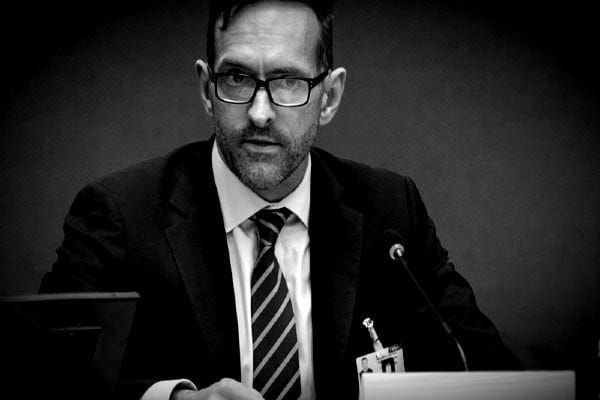US Spurns Blockbuster Venezuelan Prisoner Trade Offer
Maduro offered a 9-for-1 deal to get back his sanctions-evading money man and suspected DEA double agent Alex Saab, now in US custody
Just before Christmas last year, Roger D. Carstens, the top U.S. envoy for hostage affairs, met quietly with Venezuelan President Nicolas Maduro in Caracas as part of U.S. efforts to bring home two Americans, whom the Biden administration says are being wrongfully detained there.

According to three sources familiar with the previously unreported Dec. 19 meeting, Maduro proposed a prisoner swap: the release of the two wrongfully detained Americans, along with six other jailed U.S. citizens, plus the added sweetener of turning over fugitive defense contractor, Leonard Glenn Francis, aka “Fat Leonard,” who pleaded guilty last year in federal court for his part in the U.S. Navy’s largest bribery scandal but managed to flee to Venezuela just before sentencing.
Maduro offered to release all nine, the sources said, in exchange for one person: Alex Saab, the Venezuelan leader’s top financial fixer, now awaiting trial in Miami on money-laundering charges.
It was a nonstarter, according to Biden administration officials.
“This wouldn’t constitute a real, let alone good faith offer, because it includes Saab, whom we had already made very clear is off limits,” a White House source familiar with Maduro’s proposal told SpyTalk.
Saab, 51, a Colombian businessman and Venezuelan citizen with extensive contacts around the world, is a national hero to Maduro for helping his authoritarian regime skirt tough U.S. sanctions. But to Washington, he’s a top-tier international criminal who laundered hundreds of millions of ill-gotten dollars through American banks. The erstwhile globe-trotting Saab is also wanted on money laundering charges in his native Colombia, and in Italy, where his 26-year old wife worked as a model. Until his extradition to the United States from Cape Verde in 2021, Saab, whose father is Lebanese, also acted as Hezbollah’s money man in Latin America, according to Gulf News, a UAE-based English language news site.
Those details alone would make any trade for Saab a blockbuster, in sports lingo. But he’s off the table—for now at least.
Spy Story
Complicating the issue is that Saab also worked as a spy for the U.S. Drug Enforcement Agency, providing intelligence about the inner workings of the Maduro regime, according to court papers. But some experts suspect Saab was a double agent who kept Maduro fully informed of his work for DEA. Some even suspect Saab’s reports to Maduro helped the Venezuelan leader foil a U.S.-backed coup attempt against him on April 30, 2019.
The official line on why Saab is not eligible to be part of any prisoner swap deal is because he hasn’t gone to trial yet on the money laundering charge. But in the antagonistic relationship between Washington and Maduro’s authoritarian government, experts say Saab has now become a valuable bargaining chip as the Biden administration tries to bring about the conditions necessary for free and fair elections in Venezuela.
“I suspect the U.S. isn’t going to give up Alex Saab for cheap,” said Geoff Ramsey, an expert on Venezuela at The Atlantic Council, a Washington think tank.



